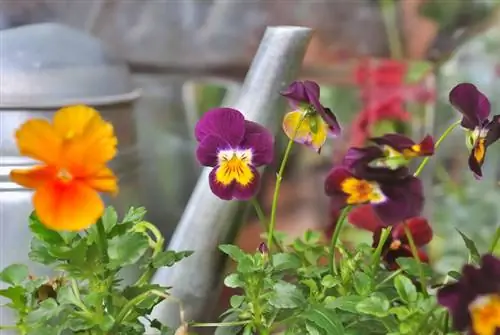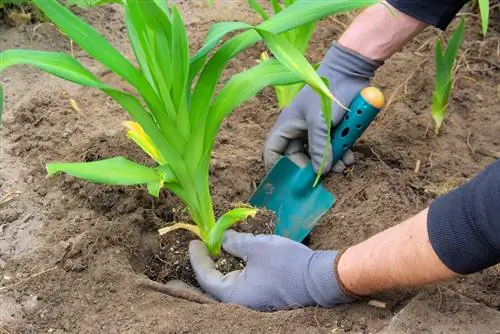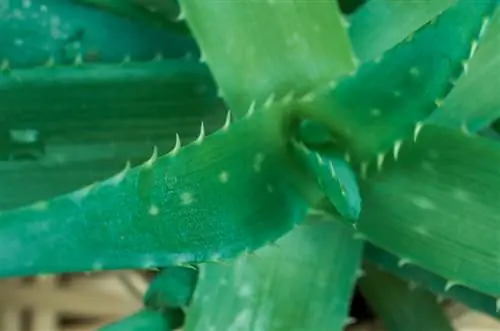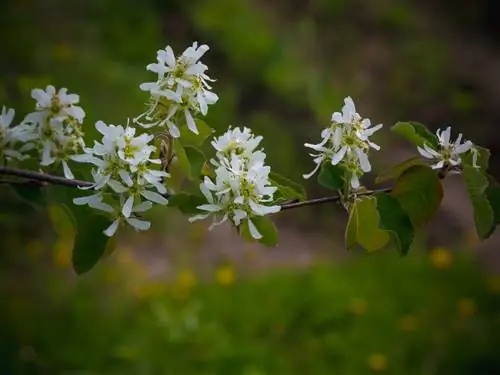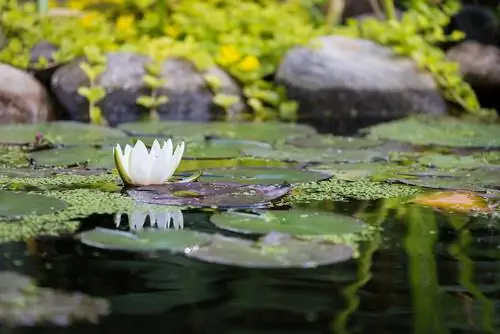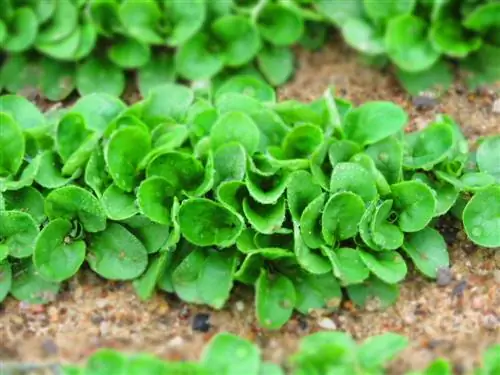- Author admin leonars@hobbygardeners.com.
- Public 2023-12-16 16:46.
- Last modified 2025-01-23 11:20.
The pansies bloom persistently without consuming large amounts of nutrients. Humous soil enriched with compost is sufficient for outdoor pansies. Plants growing in balcony boxes may need occasional and sparing fertilizer during the main flowering period.
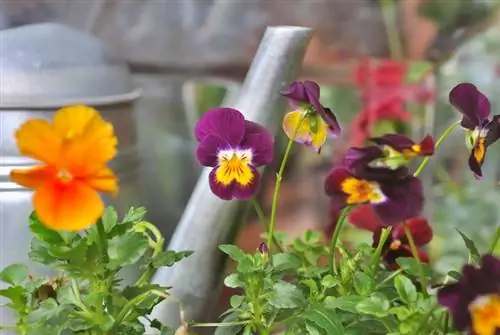
How often should you fertilize pansies?
Pansies only need moderate fertilization, about every two to four weeks with complete liquid fertilizer. Over-fertilization can lead to root inhibition, susceptibility to disease and increased linear growth instead of flowering. Regularly removing wilted flowers promotes flowering.
The pansies are small plants that are easy to care for and bloom abundantly. The ancestors of the popular garden pansy include: Wild pansy that grows naturally in meadows and fields and is quite robust. The garden pansy therefore usually survives wet, dry or even frosty periods without any damage.
Create good starting conditions
The pansies are easy to grow from seeds. Breeding takes place outdoors in summer or in a frost-free room in winter. Homegrown plants are more resilient. Of the ready-made plants purchased, the pansies available in the fall are preferable to the greenhouse products offered in the spring.
Sufficient as a substrate is standard potting soil (€4.00 on Amazon) for potted plants or humus-rich garden soil with as little lime as possible mixed with compost, to which you can add some horn shavings. Horned violets prefer stony soil as they originally come from the Pyrenees. For garden pansies, soil rich in nitrogen and alkaline with a pH value of 6.5 to 8 is ideal. A constant water supply without waterlogging ensures long-lasting flowering in addition to a sunny or partially shaded location.
Fertilize only moderately
The pansies that grow in boxes, bowls and pots may show flowering fatigue after a while. Especially those specimens that can remain in the plant containers beyond the first months of spring. These plants can be supplied with complete liquid fertilizer every two to four weeks. Much more important for long-term flowering pleasure than fertilizer is regular cleaning of the withered flowers.
Consequences of over-fertilization
Excessive supply of nutrients can lead to undesirable results:
- root penetration is inhibited,
- Disease infestation is encouraged,
- Instead of flowering, linear growth is promoted.
Tips & Tricks
Don't put your fully bloomed pansy plants in the compost right away, but rather transplant them into the garden first. At the right location, with a bit of luck, you can be rewarded with new plants created by self-sowing.

